Courses/Minicourses
General information
XLIX SUMMER SCHOOL MAT/UNB
January 4th to February 12th, 2021
Registration for the courses until December 15th, 2020, at the site:
To registere, click here!
We highlight that in the Summer School there will be the offer of 2 courses:
Linear Algebra II, Complex Variable II.
Registration for the summer courses are closed but it is still possible to register for the minicourses.
For more information, click here!
Besides the 2 courses, the minicourses and the inaugural class, the following activities we also be offered:
University and society
I Workshop for Improvement for Young Researchers (January 22, 2021)
I Workshop of Theses and Dissertations at UnB (January 25 to 27, 2021)
Promote our site and subscribe!
http://www.mat.unb.br/verao2021/
Coordination of the XLIX Summer School MAT/UnB
The inaugural class will be given by Professor Keti Tenenblat on January 4th, 2021 at 9am. This class will be
taught in Portuguese.
Youtube broadcast link: https://youtu.be/54qpk5-_pMw
Title: Superfícies especiais e soluções de equações diferenciais parciais
Abstract: The basic concepts of surfaces and the class of Weingarten linear surfaces will be reviewed. This special class of surfaces
contains those of constant Gaussian curvature or constant mean curvature.
The partial differential equations whose solutions correspond to these surfaces will be considered in this talk.
Given such a surface and the solution of the corresponding equation, geometric transformations (by Bäcklund and Ribaucour) that allow to obtain
new surfaces of the same type and therefore new solutions of the same differential equation.
The composition of such transformations allows to obtain a multitude of new solutions algebraically. In particular, for surfaces of Gaussian
curvature K = -1, which correspond to the solutions of the sine-Gordon equation, we will answer the question: composition of two Bäcklund
transformations is equivalent to one transformation of Ribaucour?
Several examples of surfaces and solutions of differential equations will be displayed.
Keti Tenenblat
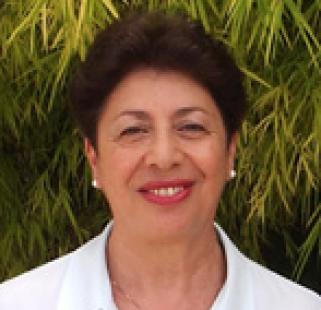
Email: k.tenenblat@mat.unb.br
Lattes CNPq: Clique aqui
Minibio: She has a degree in Mathematics from the Universidade Federal do Rio de Janeiro (1967), a
master's degree in Mathematics from the University of Michigan (1969), a doctorate in Mathematics from the
Instituto de Matemática Pura e Aplicada (1972) and a post-doctorate from the University of California, Berkeley
(1975-1978). She is currently Professor Emeritus at the Universidade de Brasília, CNPq productivity scholarship,
member of the CNPq Mathematical/Statistics Advisory Committee, member of the Advisory Board of FAPDF and
president of the Fundação de Estudos Em Ciências Matemáticas (since 1997) She was president of the Sociedade
Brasileira de Matemática (SBM), representative of the area of Mathematics, Probability and Statistics at CAPES
(twice) and representative of Exact Sciences at the Scientific Technical Council of CAPES. She was Editor of the
magazine Matemática Contemporânea published by SBM, for 20 years. She was Coordinator of the Graduate Program
in Mathematics at UnB for 10 years, Head of the Mathematics Department at UnB and a member of the Science and
Technology Committee of the Distrito Federal. She was elected a full member of the Academia Brasileira de Ciências
and The World Academy of Sciences (TWAS). She was distinguished by the Presidency of the Republic with the
National Order of Scientific Merit in the Comendador Class and in the Grã-Cruz Class. She received a Moção de Louvor
from the Legislative Chamber of the Distrito Federal and the title of Honorary Associate of SBM. As a researcher
in Mathematics she works with an emphasis on Differential Geometry. It is mainly dedicated to the study of the
geometry of varieties and the interaction between differential geometry and differential equations. She
supervised 25 masters and 27 doctors. She was a visiting professor at several Brazilian and foreign universities,
including being a guest speaker at a considerable number of conferences at universities and national and
international scientific congresses. She has several publications, including books and research articles
published in specialized international journals.

Email: k.tenenblat@mat.unb.br
Lattes CNPq: Clique aqui
Minibio: She has a degree in Mathematics from the Universidade Federal do Rio de Janeiro (1967), a
master's degree in Mathematics from the University of Michigan (1969), a doctorate in Mathematics from the
Instituto de Matemática Pura e Aplicada (1972) and a post-doctorate from the University of California, Berkeley
(1975-1978). She is currently Professor Emeritus at the Universidade de Brasília, CNPq productivity scholarship,
member of the CNPq Mathematical/Statistics Advisory Committee, member of the Advisory Board of FAPDF and
president of the Fundação de Estudos Em Ciências Matemáticas (since 1997) She was president of the Sociedade
Brasileira de Matemática (SBM), representative of the area of Mathematics, Probability and Statistics at CAPES
(twice) and representative of Exact Sciences at the Scientific Technical Council of CAPES. She was Editor of the
magazine Matemática Contemporânea published by SBM, for 20 years. She was Coordinator of the Graduate Program
in Mathematics at UnB for 10 years, Head of the Mathematics Department at UnB and a member of the Science and
Technology Committee of the Distrito Federal. She was elected a full member of the Academia Brasileira de Ciências
and The World Academy of Sciences (TWAS). She was distinguished by the Presidency of the Republic with the
National Order of Scientific Merit in the Comendador Class and in the Grã-Cruz Class. She received a Moção de Louvor
from the Legislative Chamber of the Distrito Federal and the title of Honorary Associate of SBM. As a researcher
in Mathematics she works with an emphasis on Differential Geometry. It is mainly dedicated to the study of the
geometry of varieties and the interaction between differential geometry and differential equations. She
supervised 25 masters and 27 doctors. She was a visiting professor at several Brazilian and foreign universities,
including being a guest speaker at a considerable number of conferences at universities and national and
international scientific congresses. She has several publications, including books and research articles
published in specialized international journals.
The following post-graduate courses will be offered in XLIX Summer School. They will occur from January 4th to February 12th, 2021. Attention: The courses will be taught in Portuguese.
x
Complex Variable II
Schedule:
Monday, Wednesday and Thursday, 2pm to 5pmPeriod:
January 4th to February 12th, 2021Local:
The course will be onlineProfessor:
Eduardo Antonio da Silva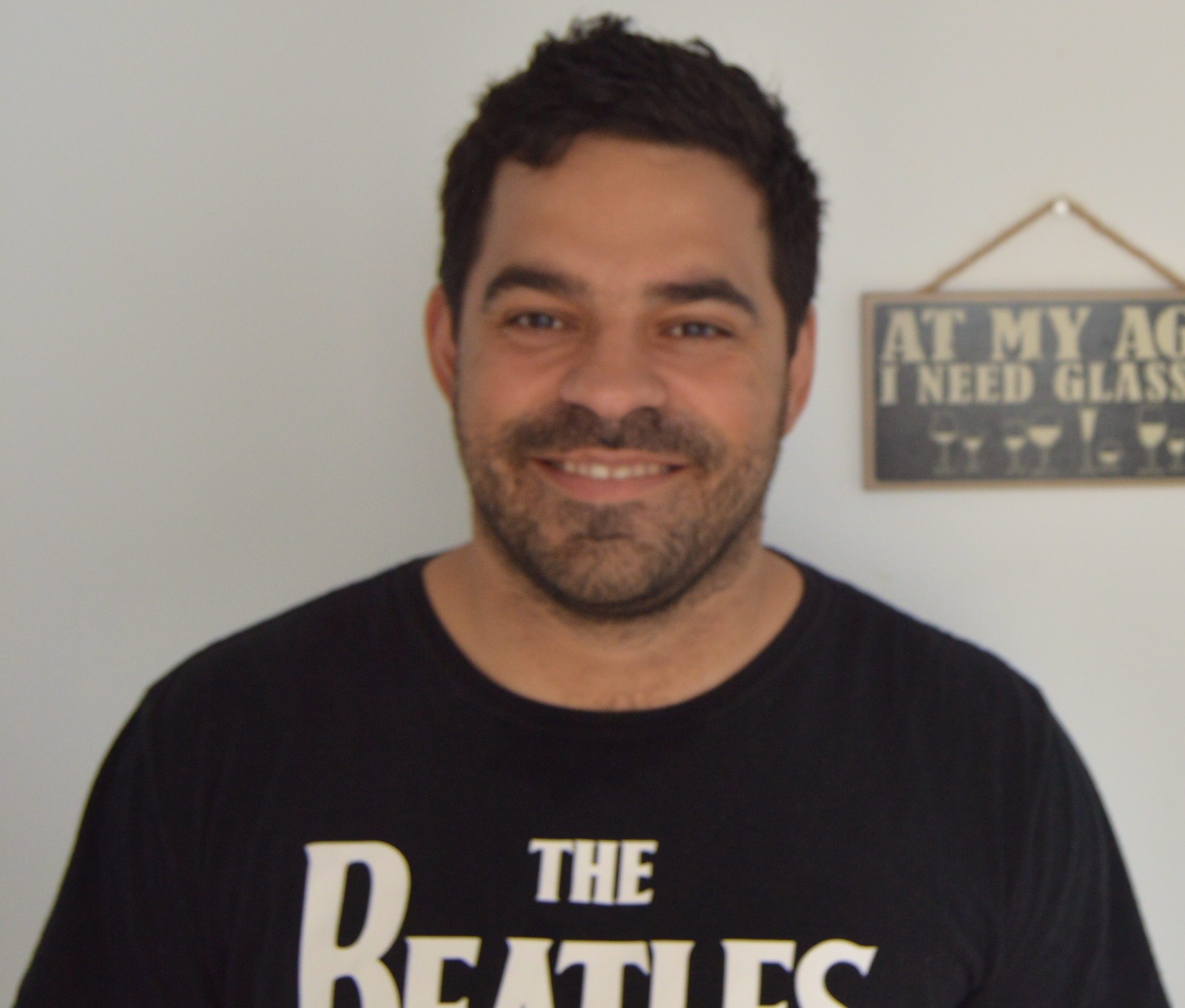
Personal Page: Click here
Minibio: Born in goiânia-GO, where he studied physics at PUC - Goiás, he has a doctorate from Universidade de Brasília (2014-2016). His formation revolves around Ergodic Theory and Statistical Mechanics. Currently, his favorite research topics are, Thermodynamic Formalism Via Transfer Operators and Random Dynamical Systems.
Workload:
60 hoursAbstract:
Functions of one complex variable.Differentiability.
Cauchy-Riemann equations.
Cauchy-Goursat theorem, Cauchy's integral formula.
Taylor and Laurent series.
Isolated singularities.
Poles and residues.
Applications.
Essential singularities.
Conformal mappings, Riemann's theorem.
Analytic continuation.
Entire and meromorphic functions.
References:
1. John Conway, Functions of One Complex Variable, Springer-Verlag, 1978;2. Ahlfors L.; Complex Analysis, MC Graw-Hill/New York, 1972;
3. Hille E.; Analytic Function Theory, Adisson Wesley, 1971;
4. Rudin W.; Real and Complex Analysis, Graw-Hill/New York, 1968.
x
Linear Algebra II
Schedule:
Monday to Friday, 10am to 12pmPeriod:
January 4th to February 12th, 2021Local:
ZoomProfessor:
Alex Carrazedo Dantas
Personal Page: Clique aqui
Minibio: Alex obtained his degree in Mathematics (2007) from Universidade Estadual de Londrina (UEL). He obtained his master’s degree in Mathematics (2011) from the Universidade Estadual de Maringá (UEM) and his PhD in Mathematics (2016) from the Universidade de Brasília. He defended his thesis in Algebra, more specifically, in Group Theory. From 2016 to 2018, he worked as an assistant professor at the Universidade Tecnológica Federal do Paraná (UTFPR), Guarapuava campus. Since 2018, he is an adjunct professor at the Universidade de Brasília. His research is focused mainly in groups generated by automatons, groups closed by state and groups with finite orbits via automorphism.
Workload
60 hoursAbstract:
1. Systems of linear equations.2. Vector spaces.
3. Polynomials.
4. Primary decomposition.
5. Canonical form of Jordan.
6. Spectral theorem.
7. Inner product.
8. Multilinear forms – tensors.
References:
1. Hoffman/Kunze; Álgebra Linear; Ed. Livros Técnicos e Científicos, 1979;2. Lang, Serge; Álgebra Linear; Ed. Ciência Moderna, 2003;
3. Halmos, P. Espaços Vetoriais de Dimensão Finita; Ed. Campus, 1978;
4. Lipschutz, S; Álgebra Linear; Ed. McGraw-Hill Makron Books 1994.
Both courses will be used to assess candidates to the selection process for the Master's degree
Program (MSc) of the Department of Mathematics at University of Brasilia.
To register at the Summer Courses, you need to send your grade history of undergraduate to:
verao.unb2021@gmail.com
and fill the registration form that can be found at this link:
https://mat.unb.br/verao2021/verao/inscricao_verao_pt.html
Registration for summer courses are closed.
Attention: Only students selected for summer courses will receive the link to access the classes.
The following minicourses will be offered at the XLIX Summer School
x
Regularity theory: from PDEs to interfaces
The minicourse will be taught in Portuguese.
Period:
February 1th, 2th and 4th of 2021, from 5pm to 7pm.Local:
ZoomProfessor:
Edgard Pimentel (PUC/Rio)
Abstract:
A natural question in the analysis of PDEs concerns the regularity of the solutions to a given problem. That is, the impact of the equation's structure on the smoothness degree of its solutions. A typical instance where it can be observed is available in basic courses on mathematical analysis: twice-differentiable functions that happen to be harmonic are, indeed, analytic. In parallel to regularity properties of the solutions, one finds the analysis of geometric properties intrinsic to the equation, e.g. the local regularity of the zero-level sets of solutions. We are interested in the intersection of those two variants: the structure of the equation under analysis changes (discontinuously) with respect to properties of the solutions. To be more precise, we start our discussion with a non-convex Hamilton-Jacobi equation in the presence of gradient constraints; in this setting we detail the optimal regularity of solutions and derive a free boundary condition. In the sequel we focus on a fully nonlinear problem whose diffusion structure depends on the sign of solutions; in this setting we talk about optimal regularity and geometric properties of the free interface. Finally, we consider degenerate fully nonlinear problems; in this setting the sign of the solutions affects the degeneracy rates of the problem, yielding a two-flavors free boundary problem. We cover the basics of viscosity solutions, discuss a few strategies in regularity theory and put forward elementary material on free boundary analysis.
x
Automata, languages and groups of automorphisms of rooted trees
The minicourse will be taught in English.
Period:
January 18th, 19h and 21th of 2021, from 10am to noonLocal:
ZoomProfessor:
Marialaura Noce (University of Göttingen, Germany)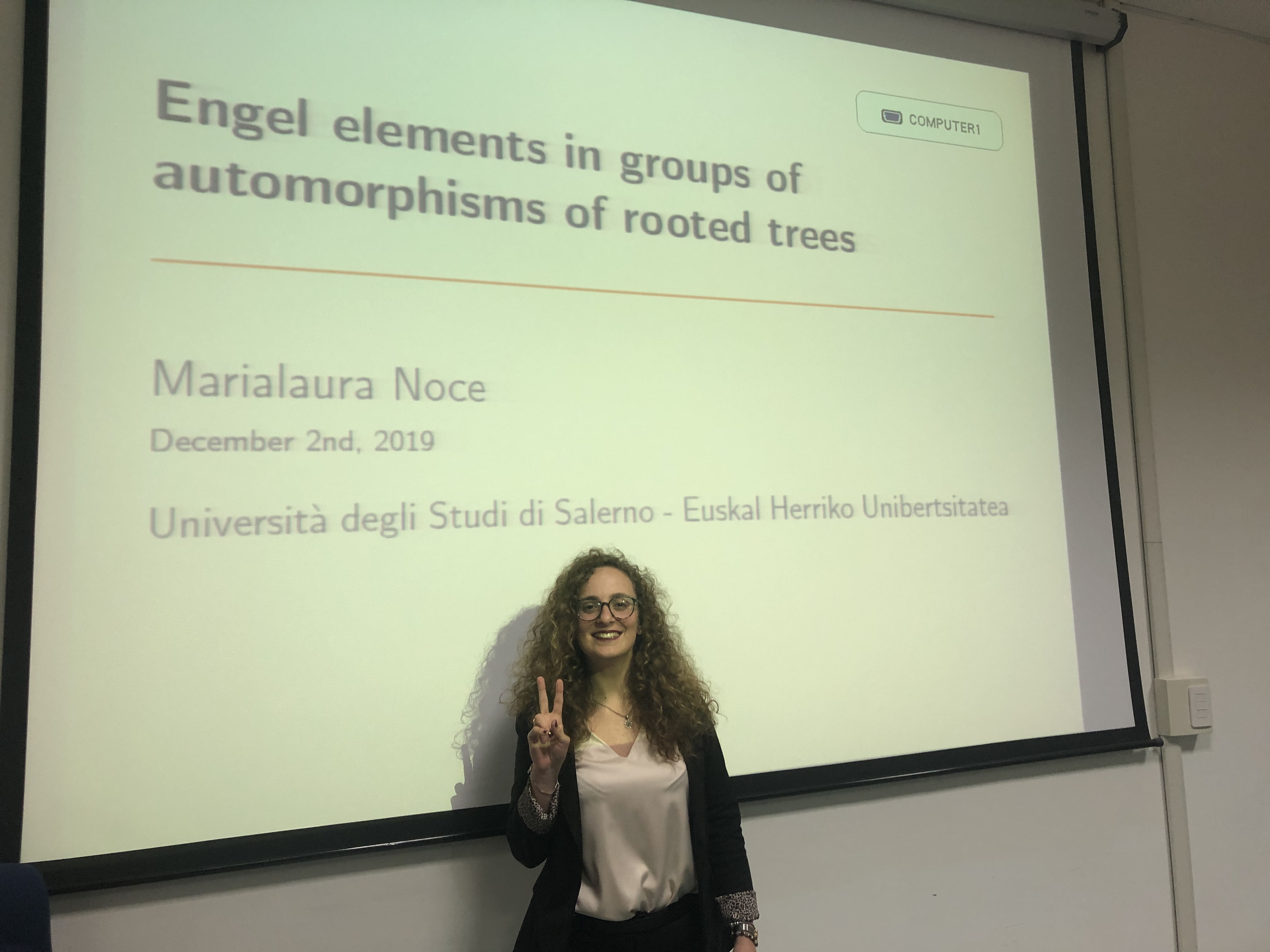
Abstract:
In this course we will give an introduction to automata groups, explaining their connections with groups of automorphisms of rooted trees, and formal languages. Then, we will discuss remarkable examples, important recent developments of this theory, and open problems.Material:
Lecture notes 1Lecture notes 2
Lecture notes 3
Exercícios
x
Extremal parameters, Nehari manifold and PDEs
The minicourse will be taught in Portuguese.
Period:
February 1st to 4th, 2021, from 10am to noonLocal:
ZoomProfessor:
Kaye da Silva (UFG)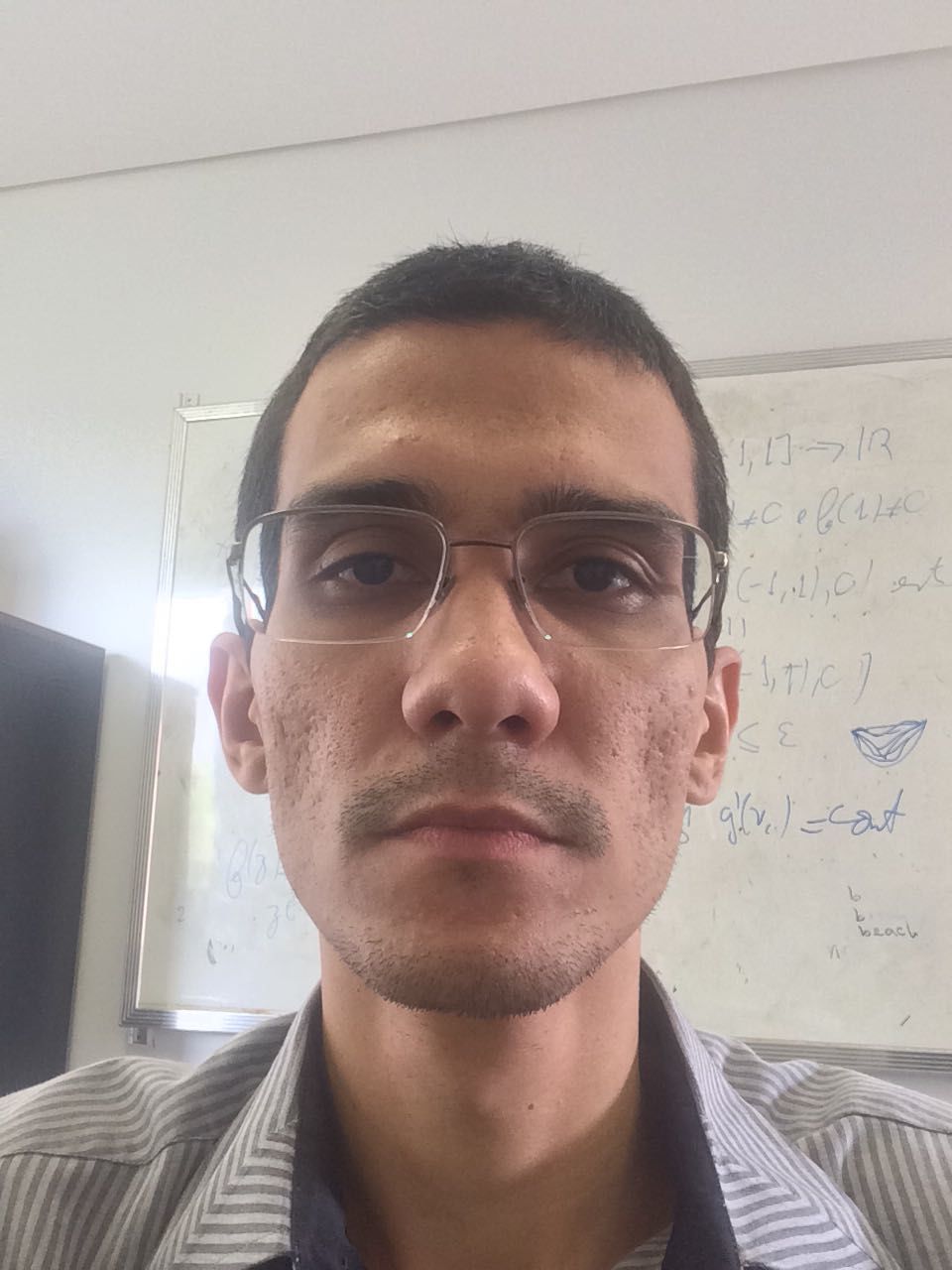
Abstract:
We introduce the extremal parameters and show its relation with topological changes of the Nehari set. As a consequence we deduce existence, non-existence and multiplicity of solutions to a large class of variational elliptic PDEs.
x
Superfícies mínimas e transições de fase
The minicourse will be taught in Portuguese.
Period:
January 11th to 14th, 2021, from 4pm to 5:30pmLocal:
ZoomProfessor:
Pedro Gaspar (University of Chicago)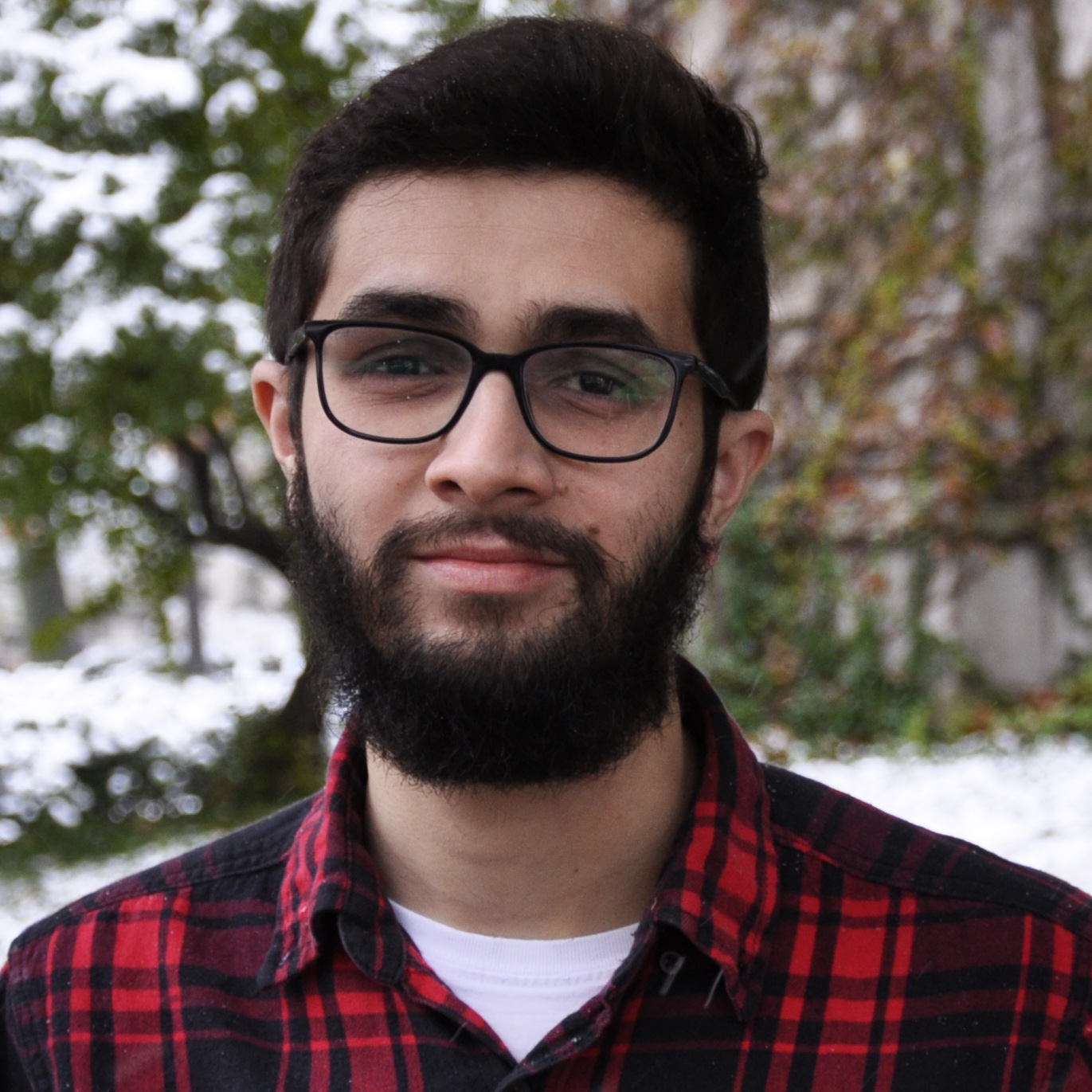
Abstract:
Minimal surfaces are critical points of the area function and are among the most studied objects in Differential Geometry and Geometric Analysis, with deep connections with different areas, such as Partial Differential Equations (PDEs), Calculation of Variations and Mathematical Physics. In this minicourse, we will discuss the relationships between such surfaces and the theory of phase transitions - in particular, the Allen-Cahn equation. These relationships have been explored since the 1970s to predict and prove results on minimal hypersurfaces using classical techniques of Calculation of Variations and PDEs and, conversely, to obtain information on certain semilinear equations through knowledge of the geometry of such hypersurfaces.With a focus on geometric aspects of the Allen-Cahn equation, we will talk about some approaches to prove the existence of solutions and study their qualitative properties and discuss how the solutions of this equation (and its sets of zeros) approach minimal hypersurfaces, providing a useful approximation of the functional area.